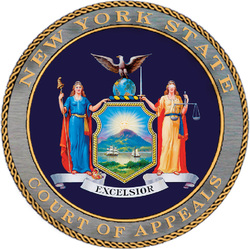


For the last three decades, there has been disagreement among the four departments of the New York Appellate Division regarding the conditions that must be met by a party wishing to subpoena a non-party in civil litigation. This difference of opinion came as a result of a 1984 amendment to Section 3101(a)(4) of the New York Civil Practice Law and Rules (CPLR), which eliminated the requirement of procuring a court order prior to serving a non-party subpoena—as long as the substance of the discovery was deemed “material and necessary” to the case and the subpoenaing party clearly stated the reasons for their request to the non-party. The First and Fourth Departments maintained that the party seeking discovery must only establish the relevance of the sought after information. The Second and Third Departments, however, added a further stipulation that the subpoenaing party also demonstrate that it could not obtain the requested information from any other source. A Court of Appeals decision earlier this year has finally resolved this divisional split . . . and made the discovery process a lot easier in New York.
In an attempt to gather evidence for his multi-million-dollar 2009 California case against Rudy Kurniawan, whom he suspected of selling him counterfeit vintage wines, William Koch served a subpoena on non-party John Kapon, CEO of Acker, Merrall & Condit (AMC), a New York retailer of fine wines. Kapon moved to quash plaintiff Koch’s subpoena, claiming, among other things, that CPLR Section 3101 required Koch to take defendant Kurniawan’s deposition prior to subpoenaing non-party AMC. New York State’s highest court, however, concluded that whether or not a party might be able to get information from other sources is irrelevant when it comes to seeking a non-party subpoena. As long as the subpoenaing party explicitly states the "circumstances or reasons" for the subpoena, then the burden falls on the non-party to demonstrate that its testimony would be irrelevant to the litigation. Koch’s subpoena met the CPLR’s “notice” requirement. Therefore, the Court of Appeals sided with the First and Fourth Departments’ interpretation and rejected the petitioners’ motion to quash because the non-party “failed to meet its burden of establishing that its deposition testimony was irrelevant to the California action.”
While this decision clarifies New York law and removes one of the barriers to obtaining non-party discovery, this does not mean that non-parties have no recourse if they are served with a subpoena. There are other valid objections to discovery that may apply. For example, a subpoena that seeks a broad range of documents covering an expansive range of topics or time period may be quashed as overbroad, burdensome or oppressive. See, e.g., In the Matter of Reuters Ltd. v. Dow Jones Telerate, Inc., 231 A.D.2d 337 (1st Dep’t 1999). Additionally, a subpoena seeking confidential documents containing trade secrets or other proprietary information may also be quashed. Finally, if the subpoena does not comply with the CPLR’s mandatory notice requirement, or if it is clear that the requested information is irrelevant to the litigation, those are additional grounds for objection. It should also be noted that even where the information sought is proper, the non-party may be entitled to reimbursement of “reasonable and proper” expenses incurred while complying with a subpoena, but there is a split in authority as to the types of expenses that are reimbursable.